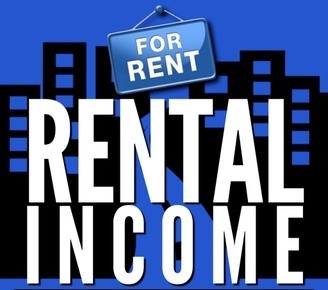Renting out your home or second home for short periods of time is becoming increasingly popular with the advent of online services that match property owners with prospective renters. The online sites providing these services include Airbnb, VRBO, and HomeAway.
There are special (and often complex) taxation rules associated with renting out your home or second home for short periods of time. In some cases, these rules allow the rental income you receive to be tax-free. In other situations, the rental income and expenses may have to be treated as business income and reported on a Schedule C, as opposed to a rental activity reported on Schedule E.
The following is a synopsis of the rules governing short-term rentals.
Rented for Fewer than 15 Days during the Year – When you rent out your home for fewer than 15 days total during the tax year, the rental income is not reportable, and the expenses associated with that rental are not deductible. However, interest and property taxes need not be prorated, and the full amounts of the qualified mortgage interest and property taxes you pay are reported as itemized deductions (as usual) on your Schedule A, if you itemize your deductions.
The 7-Day and 30-Day Rules – Rentals are generally passive activities, meaning that they are not treated as a trade or business and are not subject to self-employment taxes. However, an activity is not treated as a rental if either of these statements applies:
- The average customer use of the property is for 7 days or fewer—or for 30 days or fewer if the owner (or someone on the owner’s behalf) provides significant personal services, or
- The owner (or someone on the owner’s behalf) provides extraordinary personal services without regard to the property’s average period of customer use.
If the activity is not treated as a rental, then it will be treated as a trade or business, and the income and expenses, including prorated interest and taxes, will be reported on Schedule C. IRS Publication 527 states: “If you provide substantial services that are primarily for your tenant’s convenience, such as regular cleaning, changing linen, or maid service, you report your rental income and expenses on Schedule C.” Substantial services do not include the furnishing of heat and light, the cleaning of public areas, the collecting of trash, and such.
Exception to the 30-Day Rule – If the personal services provided are similar to those that are generally provided in connection with long-term rentals of high-grade commercial or residential real property (such as public area cleaning and trash collection), and if the rental also includes maid and linen services that cost less than 10% of the rental fee, then the personal services are neither significant nor extraordinary for the purposes of the 30-day rule.
 Profits and Losses on Schedule C – Profit from a rental activity is not subject to self-employment tax, but a profitable rental activity that is reported as a business on Schedule C is subject to this tax. A loss from this type of activity is still treated as a passive-activity loss unless you meet the “material participation” test, generally by providing 500 or more hours of personal services during the year or qualifying as a real estate professional. Losses from passive activities are only deductible up to the income amount from other passive activities, but unused losses can be carried forward to future years. A special allowance for real-estate rental activities with active participation permits a loss against nonpassive income of up to $25,000, which phases out when modified adjusted gross income is between $100K and $150K. However, this allowance does NOT apply when the activity is reported on Schedule C.
Profits and Losses on Schedule C – Profit from a rental activity is not subject to self-employment tax, but a profitable rental activity that is reported as a business on Schedule C is subject to this tax. A loss from this type of activity is still treated as a passive-activity loss unless you meet the “material participation” test, generally by providing 500 or more hours of personal services during the year or qualifying as a real estate professional. Losses from passive activities are only deductible up to the income amount from other passive activities, but unused losses can be carried forward to future years. A special allowance for real-estate rental activities with active participation permits a loss against nonpassive income of up to $25,000, which phases out when modified adjusted gross income is between $100K and $150K. However, this allowance does NOT apply when the activity is reported on Schedule C.
These rules can be complicated; please call this office to determine how they apply to your particular circumstances and what actions you can take to minimize your tax liability and maximize your tax benefits from your rental activities.
- Preparing Your Tax Documents - February 1, 2024
- Making of a Successful Team Environment - December 31, 2023
- Got a Mistake on Your Tax Returns? - September 3, 2023

